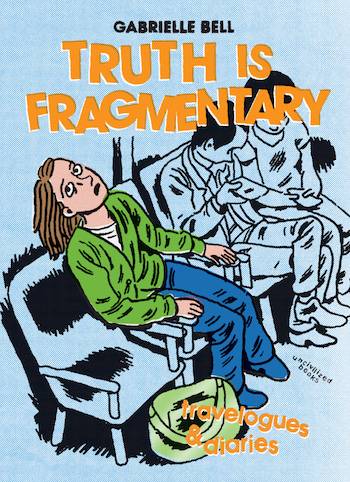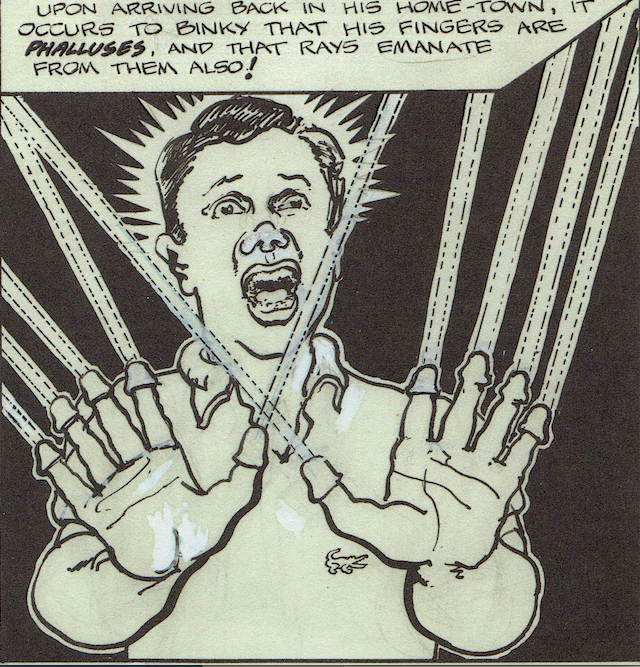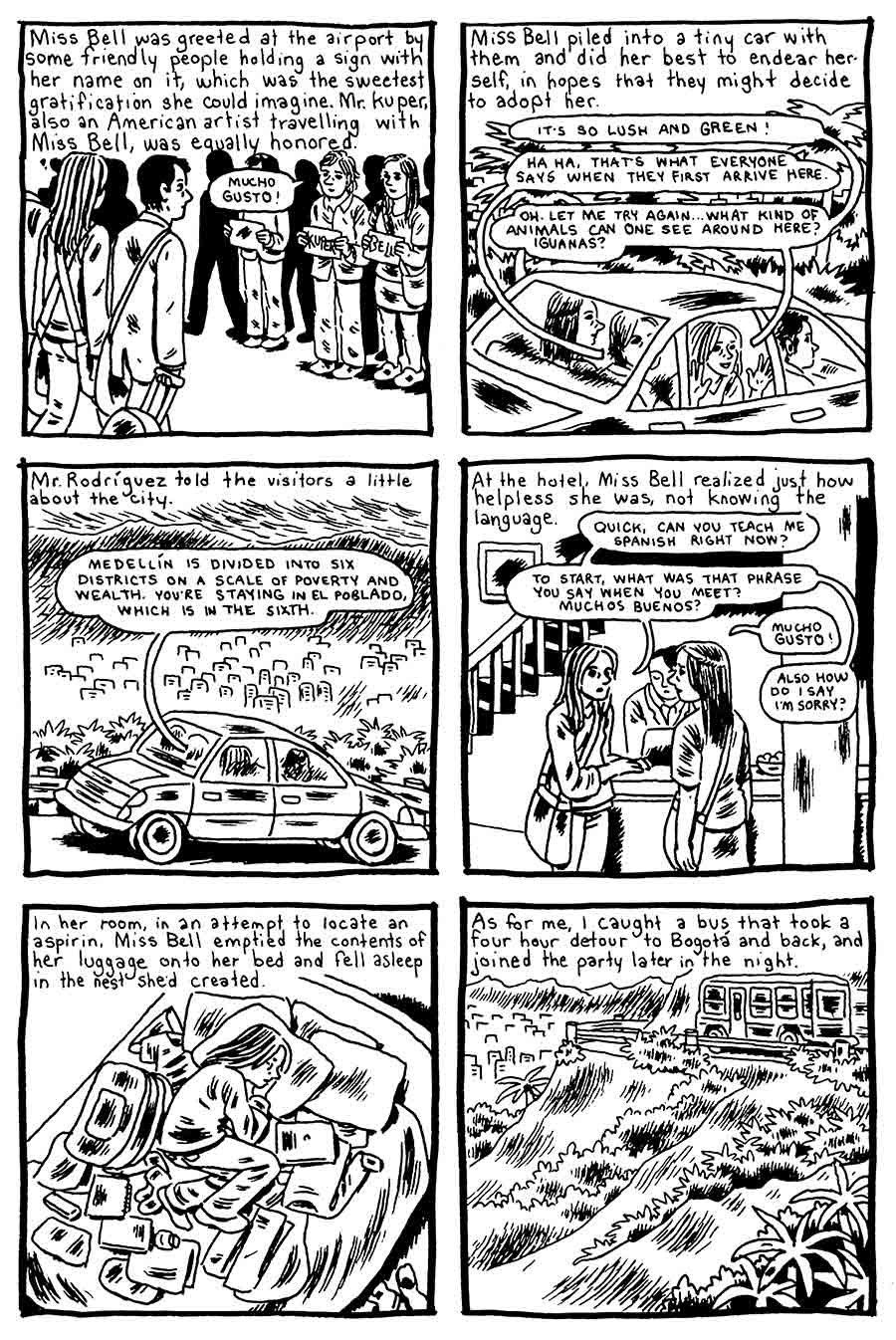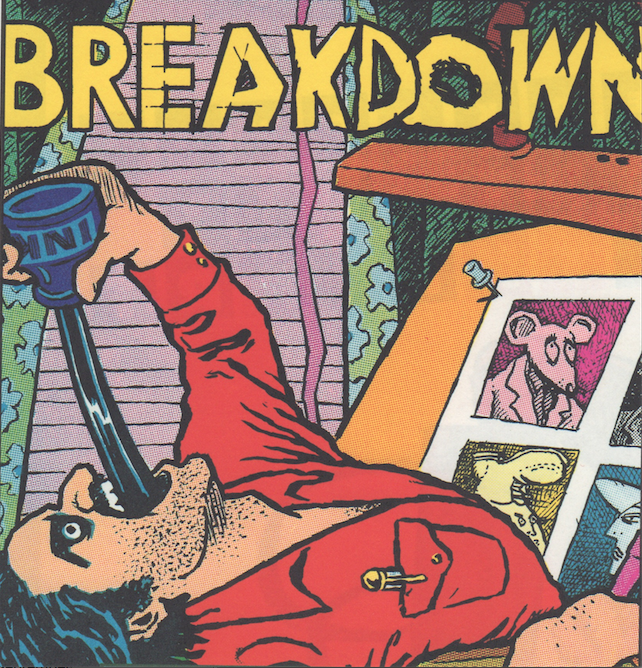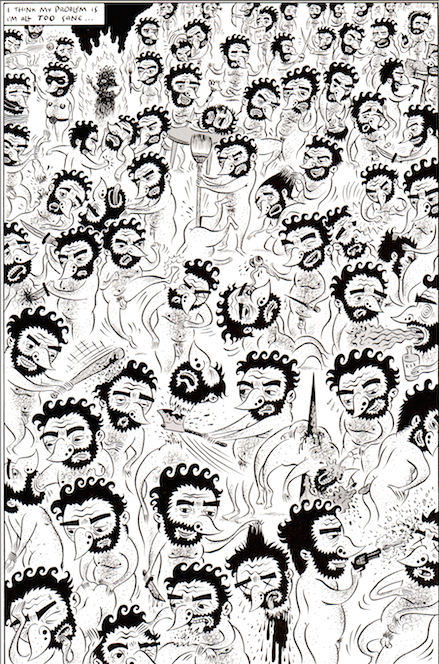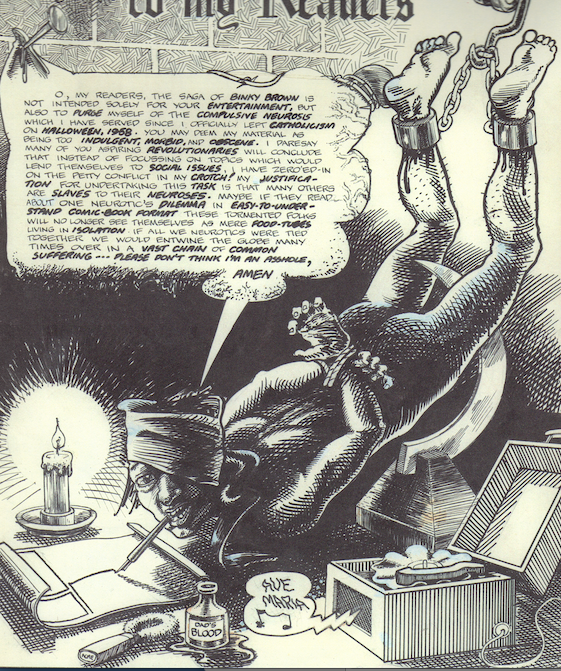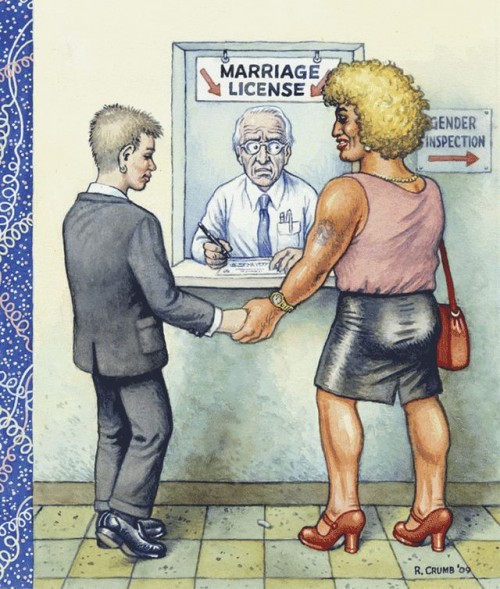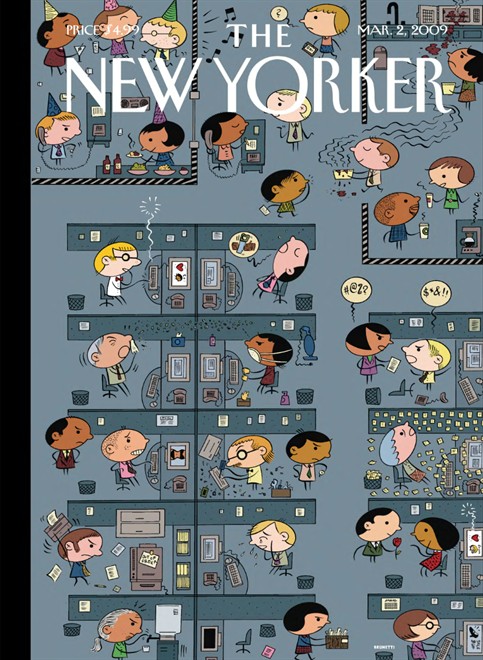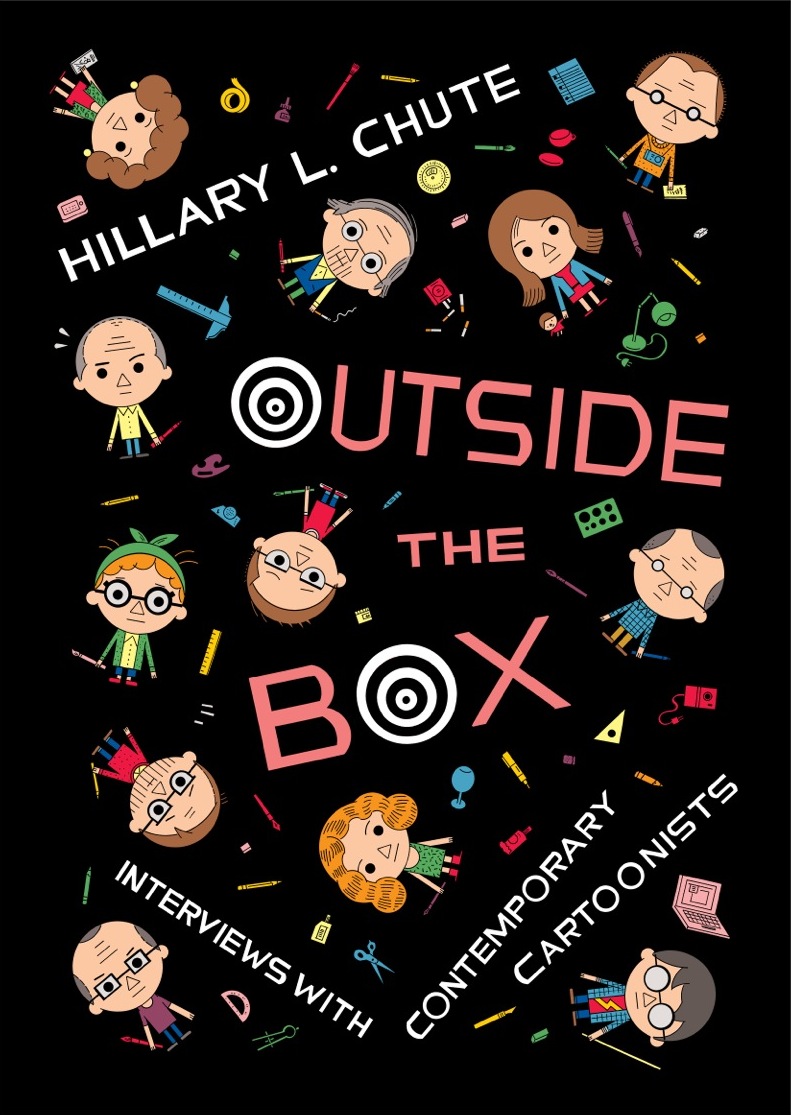Last summer, I wrote about a time I encountered sexism in comics. The piece received nearly 200 comments, most of which were some version of that didn’t happen. Funny enough, the one that stands out in my memory was left by another woman—one of maybe five or six who participated in a thread that was almost exclusively men talking to other men.
Even in the context of a blatantly sexist comment thread, her words really bothered me. That critic is unimpeachable, she wrote. I know because he’s been supportive of me. You’re inexperienced and you should toughen up. P.S. Comics is perfect!
Which: good for her. (Genuinely, I mean it.) But I still have no idea what her experience had to do with mine. What you’re saying about you isn’t correct because it’s not what happened to ME is a weird way to filter the world.
Yet people do it all the time. Her comment is a really mild example of an ugly problem I have seen elsewhere in comics: the inability to imagine that life even exists in someone else’s shoes. As a semi-casual observer who has witnessed this, this, and this—a small sampling against which my own experience literally pales in comparison—it’s clear to me that this industry is dominated by straight white men who are constantly finding new ways to discount the perspectives of people of color, women, and queer people just because they are different.
It is hugely important, now more than ever, to listen to those perspectives. One of the most respected publishers in comics is about to launch his new imprint with what he calls transgressive art, a comic that contains some of the most racist and misogynistic imagery I have seen anywhere, ever. That he is doing so in the name of “a publisher’s obligation to take risks” is not just a travesty; it is a crisis.
We talk about racism and misogyny in comics as though these are problems that belong to a bygone era. Meanwhile, in the last six months, The Comics Journal ran a column defending imagery that could have come straight out of a Wikipedia entry about black stereotypes, and Fantagraphics promoted its glorified white supremacist comic with folksy words like “innovative, quirky, idiosyncratic, oddball, experimental, [and] downright crazy.” It is no doubt a mark of my paltry knowledge about comics that I am so astonished by these incidents. My guess is that people much more involved in the industry aren’t even remotely surprised.
I was thinking about all of this as I watched a different crisis unfold in the literary world with regard to serial harasser Edward Champion. Some would call him a book blogger or a literary critic, and who knows, maybe he was those things once. In any case now he’s a person who says really despicable (and sometimes criminal) things under the banner of criticism. He has finally been denounced by the publishing world—a process that began in June, when he published a misogynistic nightmare screed against Emily Gould, and ended recently when he harassed another female novelist on Twitter.
One weird thing I observed as that scandal unfolded was how some corners of the Internet tried to dictate the terms of how people talked about what he did. In many ways, Champion served as his own chief of propaganda; his public suicide threats caused many people to privilege his mental health over the well being of his victims, which included women who have been afraid to attend their own book events or even leave their houses at all. Watch what you say about him, these people implored. He’s clearly not well.
From a diametrically opposed point of view, I confess I felt a similar urge to dictate the terms of the Champion conversation as I watched some critics place what I believed to be undue emphasis on the question of his mental health. We should focus on the known quantity, which is the abusive behavior, for both his sake and for the sake of his victims. That’s what I want to talk about. That is the story I see.
But the weirdest (and maybe the saddest) thing about the whole sick sorry spectacle was watching women that Champion harassed chastise each other for deviating from the narrative as they see it. The most jaw-dropping display of this was, of course, Sarah Weinman, Champion’s ex-partner, who publicly scolded (and maybe privately threatened) everyone from Porochista Khakpour to the entire population of Twitter for not responding to Champion’s behavior in a way she deemed appropriate. Laura Miller at Salon, who was once the subject of Champion’s ridicule, weighed in with a “don’t feed the trolls” take that downplayed the violent imagery and threats in his rants and implicitly blamed Gould and Khakpour for his harassment. And most recently, I saw Khakpour call people out for being tough on Weinman, minimize threats that were of a different nature than the ones she received, and even (tentatively, ambivalently) defend Weinman as on-the-record reports of her abuse of power began to trickle in.
I don’t mean to suggest that these three women’s situations are analogous (and am especially anxious to seem critical of Khakpour, who I admire, and who was the victim of a crime). Weinman, Miller, and Khakpour are all quite different from one another—and that is exactly my point. Not one of their stories can stand in for another’s, just as the woman’s story I mentioned at the top of this essay can’t stand in for mine.
It has been a few weeks since I wrote the bulk of this post—time enough for the Champion thing to have become old hat. Time enough, in fact, for an entirely unrelated literary scandal to have unfolded. Time enough for another woman writer to publish a truly despicable essay that is a much more flagrant example of the me-first phenomenon I’m describing. Time enough for all of that to have become old hat, too.
While those events already feel far behind us, you will see the same pattern elsewhere, if you look. It seems like an understatement to call it a lack of empathy. It’s more like a Tyra Banks-level solipsism. David Foster Wallace has described it as a default setting that has to be actively overcome:
Everything in my own immediate experience supports my deep belief that I am the absolute center of the universe; the realist, most vivid and important person in existence. We rarely think about this sort of natural, basic self-centeredness because it’s so socially repulsive. But it’s pretty much the same for all of us. It is our default setting, hard-wired into our boards at birth. Think about it: there is no experience you have had that you are not the absolute center of. The world as you experience it is there in front of YOU or behind YOU, to the left or right of YOU, on YOUR TV or YOUR monitor. And so on. Other people’s thoughts and feelings have to be communicated to you somehow, but your own are so immediate, urgent, real.
Please don’t worry that I’m getting ready to lecture you about compassion or other-directedness or all the so-called virtues. This is not a matter of virtue. It’s a matter of my choosing to do the work of somehow altering or getting free of my natural, hard-wired default setting which is to be deeply and literally self-centered and to see and interpret everything through this lens of self. People who can adjust their natural default setting this way are often described as being “well-adjusted,” which I suggest to you is not an accidental term.
A bold choice, I know, to quote extensively from someone’s commencement speech in a screed against “edgy” comics, but I find myself returning to these words all time. The central task of adulthood, DFW suggests, is to push past the boundaries of self. A lot of people will dismiss or diminish this enterprise with accusations of political correctness or pretentiousness or whatever, but the truth is a more stripped down and simple and fundamental to being human. And I’m pretty sure that a lot of us are failing at it.
It’s natural that we use our own life experience to relate to other people. (You may have observed this essay is itself an act along those lines.) But we should never wield those experiences as some sort of testimony that diminishes, discredits, or replaces some other person’s. The “my story is somehow more real and correct and relevant than your story” response is not just an act of ego and faulty logic; it is a form of sabotage, however well intentioned. This sabotage may be innocuous, like my example of that woman’s self-involved comment on my essay. Or it can be something much, much more serious and damaging, like discrediting a rape victim.
It could be, say, publishing gore so dim that Danzig himself wouldn’t touch it with a 10-foot demon dick. It could be dismissing the concerns of readers who clearly and calmly point out the blatant racism and misogyny in the work. (This narrative is not about them, after all. It’s about you and your bravery and your “obligation to take risks.”) It could be capitalizing on that controversy even as you’re dismissing it (as any savvy businessman would), hoping that your customers will buy the thin excuse that it heralds a return to your punk rock ethos, or something?
No need to think about that last part too hard! These wild and zany comics will practically sell themselves to other white men who will not recognize that this “return to your roots” masks a profound lack of imagination.
I think a similar lack of imagination fuels all those contentious comments threads that come up whenever the issue of diversity in comics is broached. Increasingly, I suspect that many, if not most, of those comments can be boiled down to solipsism more than hate. They represent a total failure to see past the self that is then reinforced by people who largely—and by no coincidence—look exactly the same. And to borrow a term from their Pale King, I can scarcely think of anything more square than a bunch of white guys quacking at each other about their own perceived edginess, a self-image that has relied on the same old shit for nearly half a century.
Are you a white man in comics who has received a critique regarding your treatment of a different demographic? Instead of merely reacting, try to step outside yourself.
Imagine for a moment that there are other people in the world whose experiences exist independently from your own. Imagine that those experiences are valid, and that the people reporting them aren’t just confused, or overly sensitive, or stupid, or lying. Imagine yourself as a person who’s capable of listening to what they have to say. This is our real obligation—not just as publishers, or cartoonists, or critics, or readers, but also as humans.
Or, hey, we can play a different game of pretend. Let’s make believe that Gary Groth is doing something noble by building his brand on some bigot’s stupid garbage art.
Up to you!

